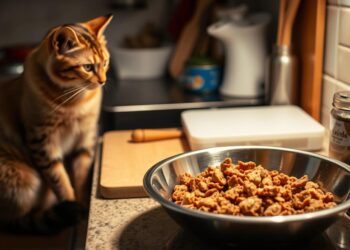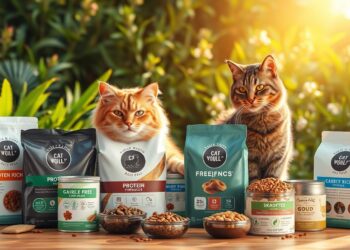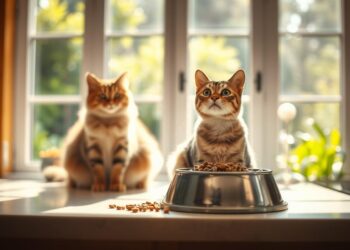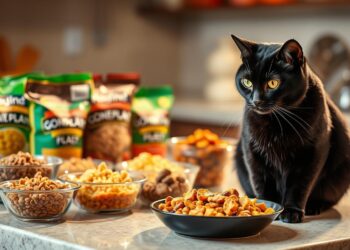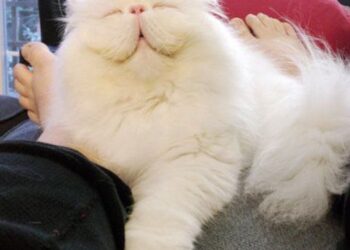As a cat owner, you’ve likely found yourself overwhelmed by the vast amount of information available on cat nutrition. With so many conflicting opinions and advice, it’s hard to know what’s best for your feline friend.
The internet is filled with misinformation on feline nutrition, making it challenging to separate fact from fiction. Many cat owners are left confused, unsure of how to provide the best possible care for their pets.
By exploring the science behind proper cat nutrition and debunking common myths, we can work together to give our cats the best possible start in life.
Common Myths in Feline Nutrition
The world of cat nutrition is riddled with myths that can mislead even the most well-intentioned cat owners. As we dive into the common misconceptions, it’s essential to understand the facts behind feline diet and nutrition.
Dry Food is Better for Dental Health
Many believe that dry food helps reduce tartar and improve dental health in cats. However, research suggests that while dry food may help reduce tartar, it’s not a substitute for regular dental care. In fact, some dry foods can exacerbate dental issues if they contain high amounts of carbohydrates.
Cats Need Carbohydrates in Their Diet
Contrary to popular belief, cats are obligate carnivores and do not require carbohydrates in their diet. While some cat foods contain carbs, they are not essential for feline health. In fact, high-carb diets can lead to obesity and other health issues.
All Commercial Cat Foods Are Nutritionally Complete
Not all commercial cat foods are created equal. Some may lack essential nutrients or contain fillers that offer little nutritional value. It’s crucial to read labels carefully and choose foods that meet your cat’s nutritional needs.
Grain-Free Always Means Healthier
The trend towards grain-free cat food has led many to believe it’s a healthier option. However, recent studies have linked some grain-free diets to heart issues in cats. It’s essential to understand that “grain-free” doesn’t automatically mean “healthy.”
By debunking these common myths, cat owners can make more informed decisions about their pet’s diet, ensuring they provide the best possible nutrition for their feline friends.
The Science Behind Proper Feline Nutrition
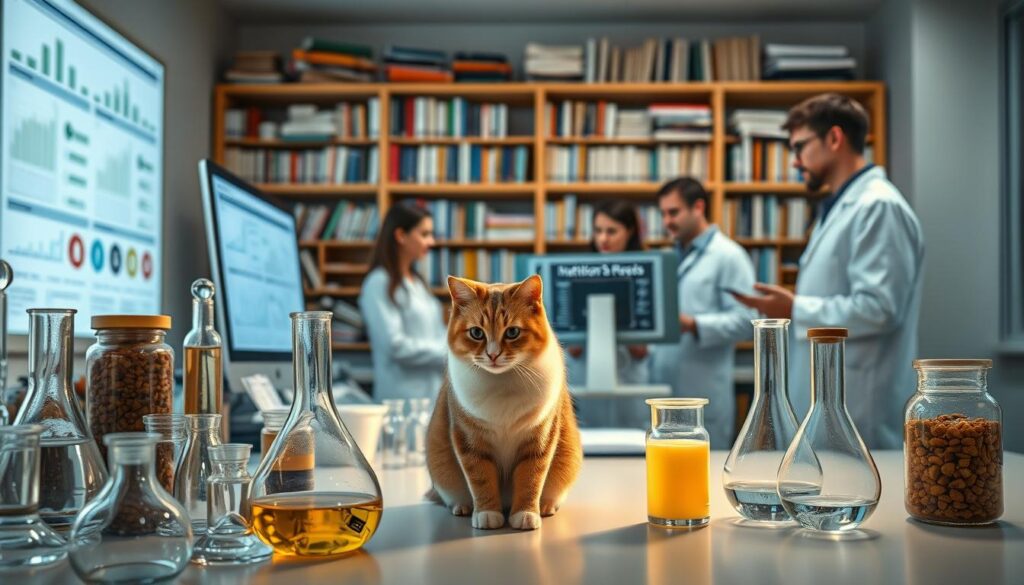
The dietary requirements of cats are shaped by their nature as obligate carnivores. This means that cats require a diet rich in protein from animal sources to thrive.
Obligate Carnivores: What This Really Means
Cats are biologically designed to consume meat. Their digestive system is optimized for the breakdown of proteins and fats from animal tissues. This is reflected in their short digestive tract and the presence of specific enzymes tailored for meat digestion.
Essential Nutrients Cats Cannot Live Without
Cats require certain nutrients that are found in animal products, such as taurine, arachidonic acid, and vitamin A. These nutrients are crucial for heart health, skin and coat condition, and overall well-being.
How to Read and Interpret Pet Food Labels
Understanding pet food labels is crucial for making informed decisions about your cat’s diet. Look for foods that list a specific animal source (e.g., chicken, salmon) as the first ingredient and avoid fillers and by-products.
| Nutrient | Importance | Sources |
|---|---|---|
| Taurine | Heart health, vision | Meat, fish, poultry |
| Arachidonic Acid | Skin and coat health | Animal fats |
| Vitamin A | Vision, immune function | Liver, fish, eggs |
Reliable Sources for Cat Nutrition Information
For accurate and reliable information on cat nutrition, consult reputable sources such as the American Animal Hospital Association or the International Cat Care website. These organizations provide evidence-based guidance on feline dietary needs.
By understanding the science behind feline nutrition and being mindful of the nutritional content of your cat’s food, you can make informed decisions to support your cat’s health and well-being.
Conclusion: Making Informed Decisions About Your Cat’s Diet
Understanding the intricacies of feline nutrition is crucial for cat owners who want to ensure their pets lead healthy lives. By debunking common myths and grasping the science behind proper cat nutrition, owners can make informed decisions that significantly impact their cat’s overall feline health.
Being aware of the nutritional needs of obligate carnivores like cats allows owners to choose the right food and provide the necessary care. Reading and interpreting pet food labels correctly is a vital skill that empowers cat owners to make better choices for their pets, enhancing their cat care practices.
Just as people have overcome health challenges through determination and support, cat owners can take an active role in their cat’s health by staying informed and making conscious decisions about their diet. By doing so, they can contribute to a healthier, happier life for their feline companions.



